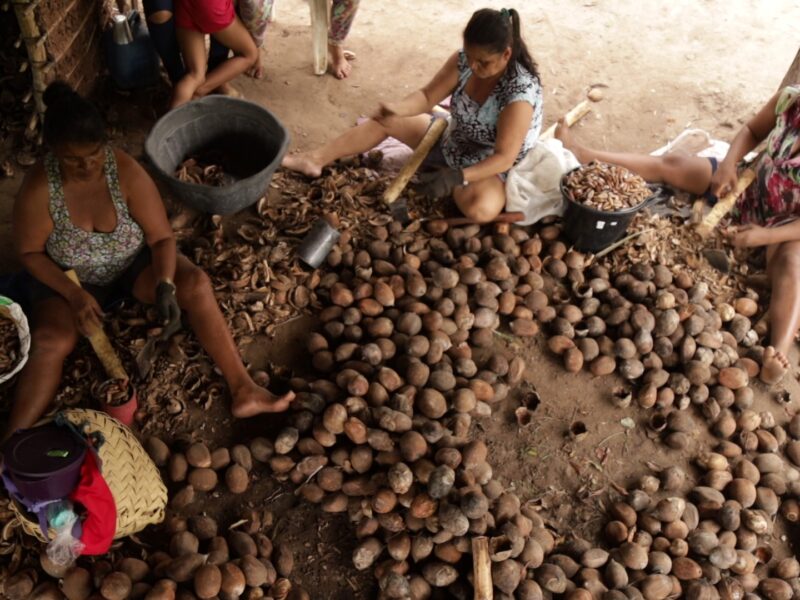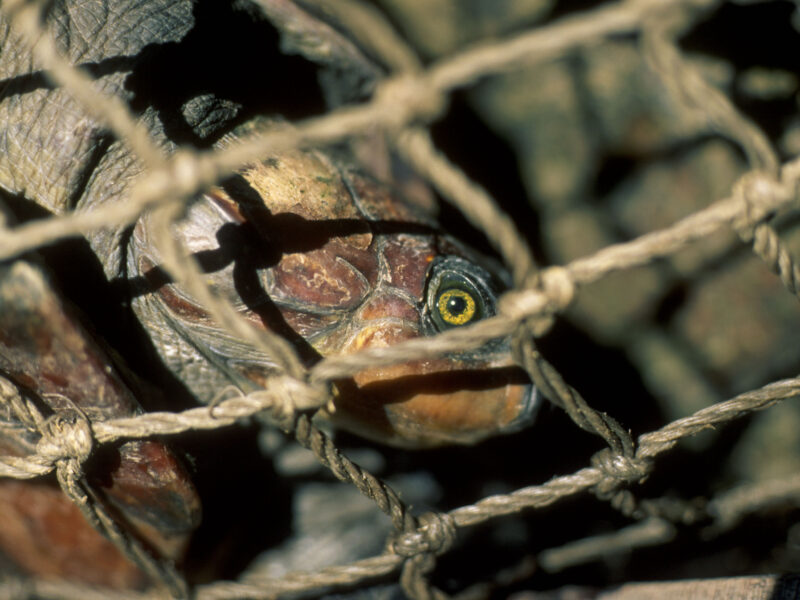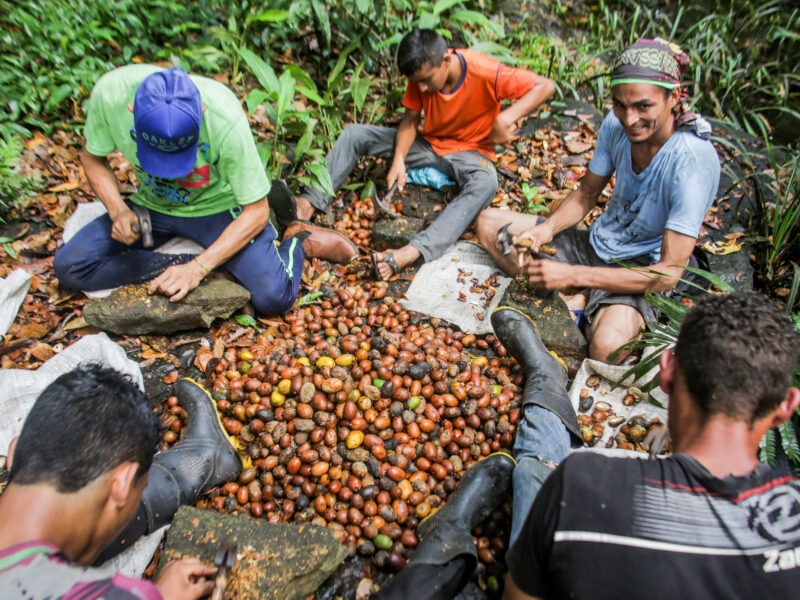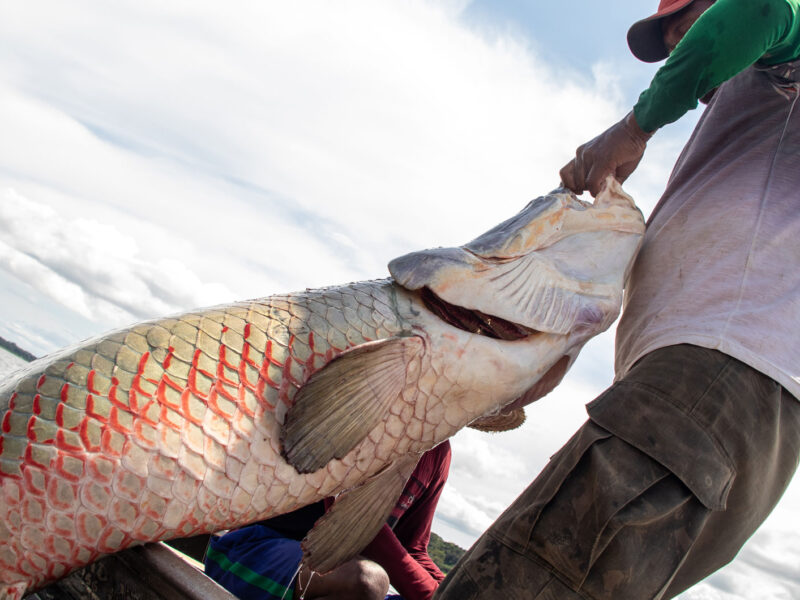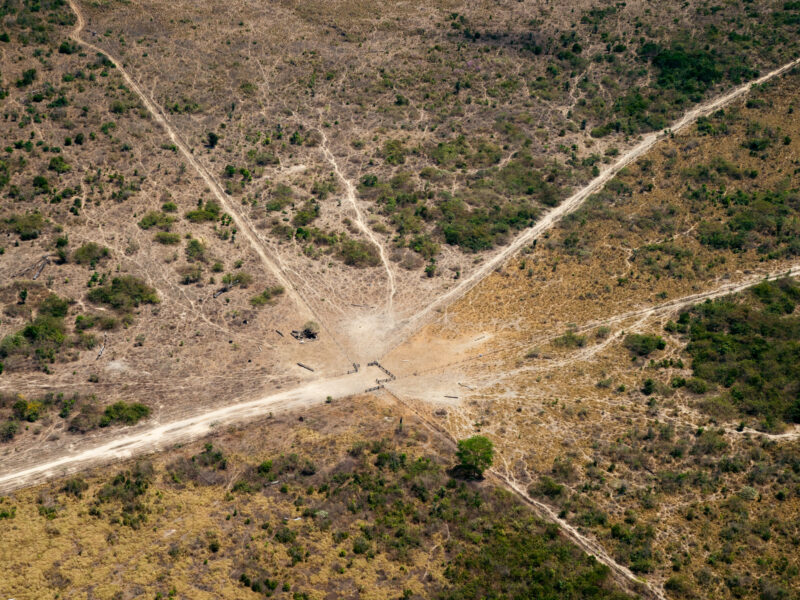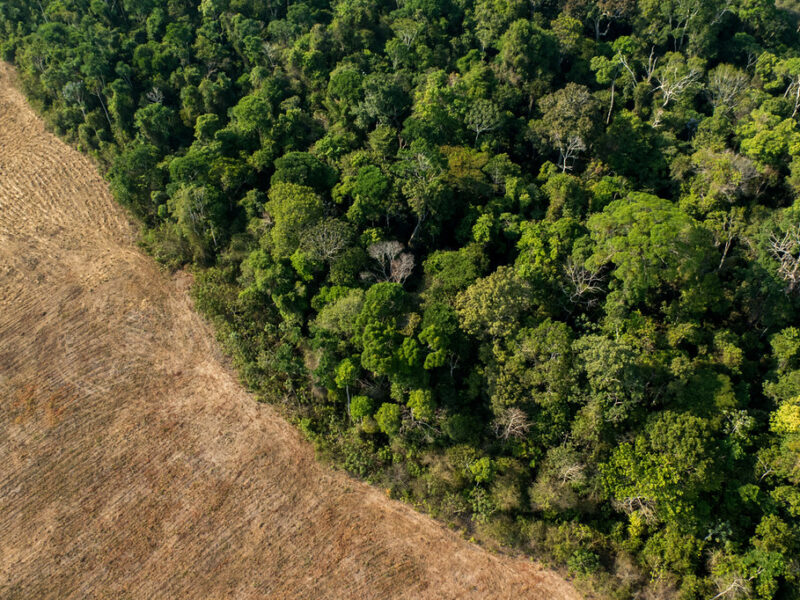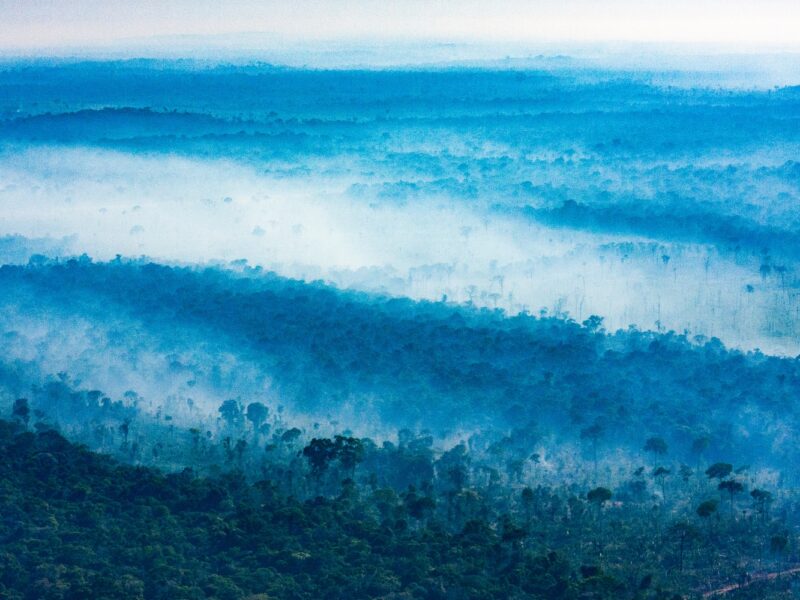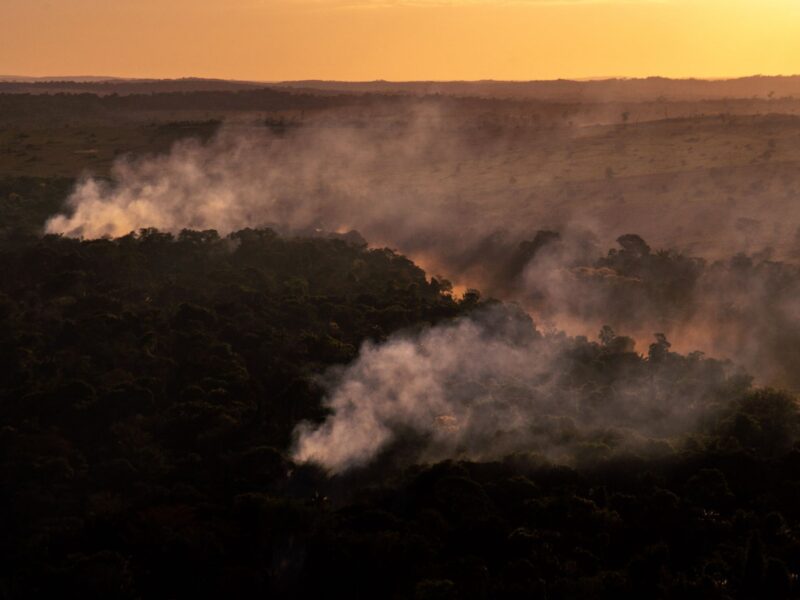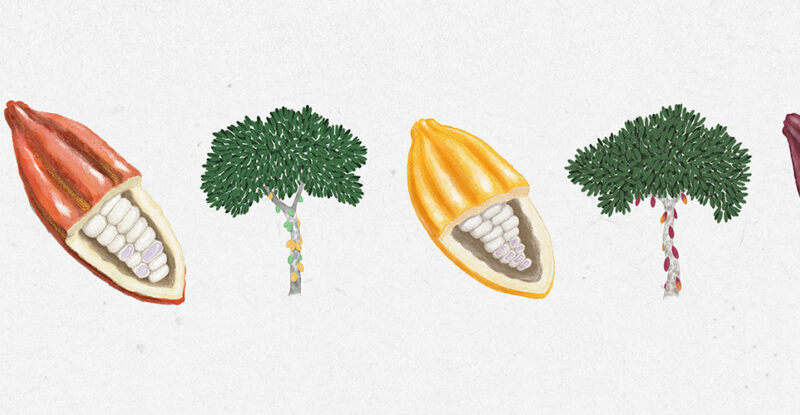The Heller family members are defendants in more than 26 cases related to environmental crimes in Novo Progresso and Altamira, Pará, and Itaúba, Mato Grosso. Only two cases were settled – by automatic discharge. The oldest fines date back to 1999.
Category: news
Women Babassu Nutcrackers Demand Compliance with Legislation Protecting this Traditional Activity
Native to Brazil, babassu nuts grow mainly in the Cerrado savannas and the Amazon rainforest. For centuries, groups of women have cracked these nuts to survive, preserving this tradition in several Brazilian States. Although their activities are protected by the Babassu Access Act (Lei do Babaçu Livre), these women nevertheless continue to face legal and physical challenges in some States.
Eating chelonian meat is an integral part of Amazonian culture, but predatory hunting is a greater threat
Chelonians, which include turtles, terrapins and tortoises, have been part of the local population’s diet since colonizers arrived on the Amazon River. That meat has become common on people’s tables, especially in riverside and traditional communities. However, deficient law enforcement in remote areas and poaching threaten species and Amazon biodiversity.
Sociobioeconomy transforms in the Amazon and recognizes central role of traditional populations for sustainable development
Concept goes beyond the defense of strengthening forest products, and carries the prefix ‘socio’ to show that the way local communities work in the economy in the Amazon, preserving its diversity, is fundamental to sustainable development.
Management of the pirarucu: when science and communities join forces to generate income in the Amazon
Contrary to forecasts made in the 1990s, over 40 areas are guaranteeing the protection of the species without driving the pirarucu to extinction. In addition, sales of the fish provide income to fishermen, who now join a production chain that brings no harm to the Amazonian ecosystem.
The Day of Fire, three years later: over half of the forest burned in the Amazon has become pasture
In addition to the area targeted for livestock, nearly 40% of the forest affected by the 2019 arson is still unused and was burned ‘for the sake of burning.’
Trees in the western and southern Amazon are less likely to survive long periods of drought
Study published in the journal ‘Nature’ sought to understand how different parts of the forest respond to drought. The research was led by a Brazilian scientist in partnership with 80 other authors and surveyed the conditions of 540 trees of 129 different species scattered across Brazil, Bolivia and Peru.
Preserving Indigenous Lands Saves $2 Billion in Public Spending Per Year on Treatment of Fire-Related Illnesses
The fires are largely responsible for the pollution related to respiratory and cardiovascular diseases. A study shows that the Amazon rainforest is capable of absorbing 26,000 tons of particulate matter per year and that indigenous territories contribute 27% of this total. Preserving them prevents 15 million new cases of illness every year.
PPCDAm: new plan against deforestation includes technologies to anticipate devastation and investment in bioeconomy to develop the Amazon
The 5th phase of the PPCDAm, a plan first launched in 2004, presents four axes for containing advancing deforestation from 2023 to 2027. The project will depend on 13 ministries for its execution and will serve as the base for achieving the goal of zero deforestation in the Amazon by 2030.
The history of cacao in the Amazon from arrival in Brazil to alternative for the local bioeconomy
Native to the Amazon, cacao helps preserve the forest intact, generate income and recuperate degraded areas. With demand outpacing production, the chain connected to the fruit in the country still lacks incentive for growth and development for local producers.



